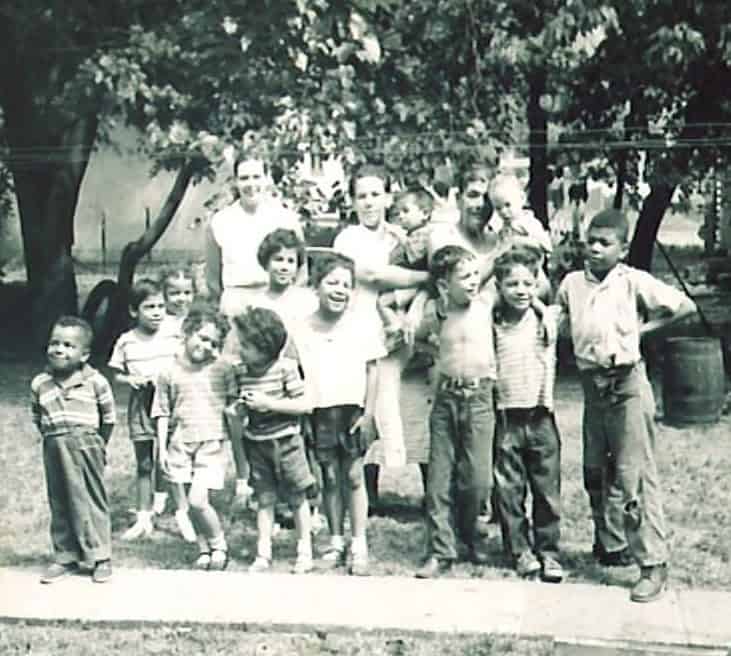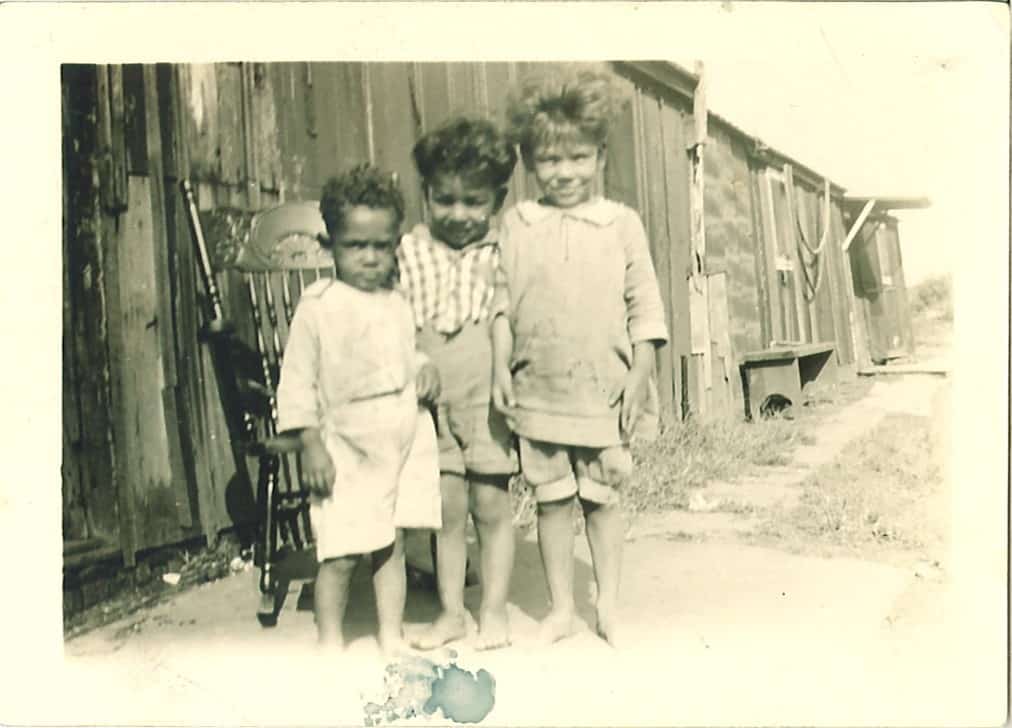This post by IWA Graduate Research Assistant Heather Cooper is the ninth installment in our series highlighting African American history in the collections of the Iowa Women’s Archives. The series ran weekly during Black History Month, and will continue monthly for the remainder of 2020. In honor of Latinx Heritage Month (September 15 – OctoberContinue reading “From Alabama to the Barrio: Ernest Rodriguez and the Fight Against Racism in Iowa”
Tag Archives: Muggie Belva Adams Rodriguez
25 for 25: Ernest Rodriguez and Estefania Rodriguez
Ernest and Estefania Rodriguez’s father, Norberto, migrated to the United States from the state of Jalisco, Mexico in 1910. He met their mother, Muggie Adams, an African-American woman from Alabama in Iowa. The Rodriguez family lived in Holy City, a box car community in Bettendorf, Iowa for several years, and Ernest and Estefania both workedContinue reading “25 for 25: Ernest Rodriguez and Estefania Rodriguez”

